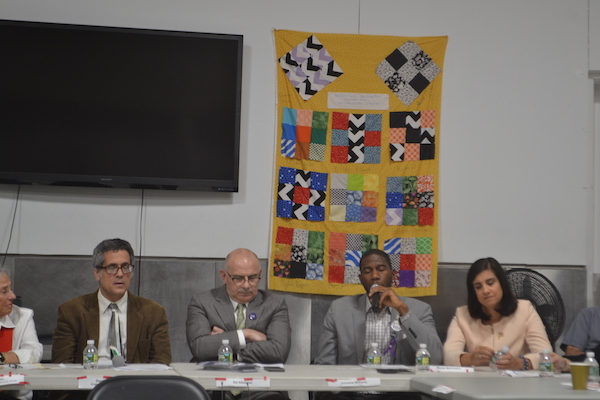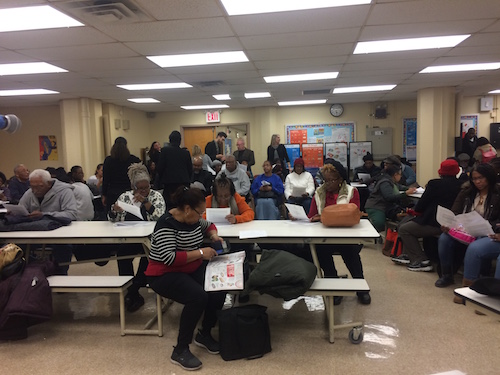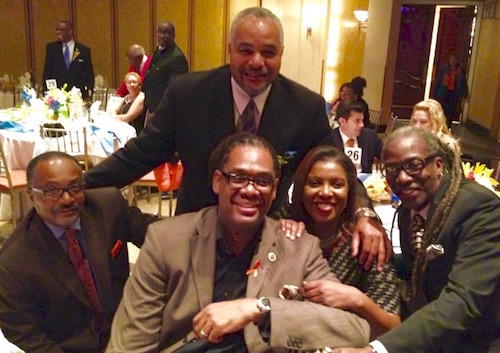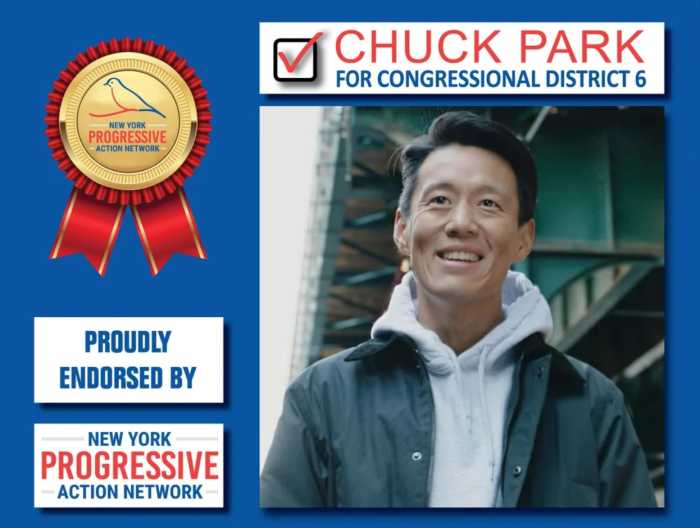Southern Brooklyn was the latest stop for two of Mayor Bill de Blasio’s challengers this past Wednesday night, with Assemblymember Nicole Malliotakis (R-Brooklyn, Staten Island) and former Democratic Councilmember Sal Albanese — who lost the Democratic primary and is now running on the Reform Party ticket — taking questions from members of five different civic organizations about a range of quality of life, tax, and public safety issues.
The meeting was not a debate, however, although it did have a moderator in Kings County Politics’ own Editor-in-Chief, Stephen Witt. “There will be no attacks tonight — the only thing we’re addressing is our issues,” said Ed Jaworski, president of the Madison-Marine-Homecrest Civic Association.
To that end, candidates were barred from speaking de Blasio’s name and from uttering anything about President Donald Trump. “We’re looking for solutions to problems endemic to southern Brooklyn,” Jaworski explained.
For his part, de Blasio was invited to participate, but did not reply; he appeared instead at a town hall in Park Slope.

As representatives of each community group quickly made clear, these problems primarily centered on aging infrastructure, rising taxes yet fewer city services, lack of community input into traffic and zoning changes, and the ballooning influence of real estate developers.
“We have rising taxes for water, sewer, and property, but no additional services in exchange,” said John Douglas, president of Gerritsen Beach Cares. “Taxes are a part of life, but there seems to be no services for it. And our aging infrastructure is a problem — the water pollution plan on Knapp Street has not been updated in 30 years.”
In response, Albanese agreed that “we have a citywide Wild West development” approach right now and that some neighborhoods shouldn’t have more taxes than others. He also noted that the building boom has resulted in less affordable housing available and an overtaxed infrastructure that is destroying the quality of this city.
As mayor, Albanese said he would overhaul the property tax system, devolve development to neighborhoods, and appoint urban planners to relevant city agencies and committees in order to balance development and zoning talks between developers themselves and a City Council that is overly influenced by developers.
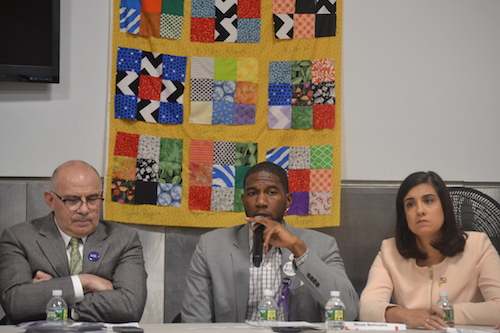
Albanese also proposed pushing through a higher property tax rate specifically on foreign holders of city real estate, in order to disincentivize their purchases and raise funds.
Malliotakis arrived after this question was asked, but answered belatedly by reaffirming her support for a property tax cap, as well as for an audit of city contracts with private service providers. “Taxpayers deserve protections; we can’t keep going to property owners and renters [for funds],” she said.
The night’s counterpoint voice, current local Councilmember Jumaane Williams (D-Canarsie, East Flatbush, Flatbush, Flatlands, Marine Park, Midwood), however, pointed out that the city has minimal authority over real estate taxes, but does have some power over housing, co-ops, utilities and the like. He also noted that he and four other councilmembers are suing to force the city and state to make the tax bill more equitable because “we need accountability and fairness, or at least an understanding that water and sewer taxes are outrageous, yet we have no control because companies can just set prices.”
On coastal resiliency and storm preparedness in a five-years-post-Sandy world — a question asked by Judy Baron, president of the Manhattan Beach Community Group, where the neighborhood is still recovering — Malliotakis said “this is why I’m running for mayor” before listing a three-point plan to invest in sewer infrastructure, “speed up” capital projects, invest in wetlands to absorb water, and clear catch basins. Albanese agreed that a formal plan is necessary — the City Council, led by Councilmember Mark Treyger (D-Coney Island, Bensonhurst, Gravesend, Sea Gate) only recently passed a bill to ensure a plan is created — and said he would “immediately convene a task force to protect the shore line and ensure we have the funds we need.”
In the event of evacuations, both candidates said they would continue to rely on school shelters, but would invest funds to ensure they’re clean and well supplied, which many locations weren’t during Hurricane Sandy. Malliotakis also said she would seek to utilize hotels with a voucher program, work with colleges, and allow pets into shelters.
Liz Morrissey, director of the Madison-Marine-Homecrest Civic Association, asked the candidates how they will change the top-down system and get city agencies to get resident input before changing traffic patterns, bike lanes, and parking spots.
“That’s the crux of my campaign,” declared Albanese, referencing his stance that the city gives lip service to communities; he said as mayor, he would have Community Boards more involved and not just in an advisory role.
Malliotakis agreed, saying she’s “frustrated with the administration jamming [policies] down people’s throats. We need an administration that considers the needs and desires of locals and understands what works in one borough doesn’t in another,” adding the she “will have town halls at the beginning of my term, not at the end” — a jab at de Blasio.
In response to a question from Madison-Marine-Homecrest’s vice president, Bernadette Morrissey, the conversation turned back to real estate issues — specifically the hundreds of millions of dollars in uncollected fines on developers.
Albanese said that in order to reduce “Big Real Estate” influence over politics, he would revamp the city campaign system, getting business out, and model it after Seattle, where he claims residents are each given four $25 vouchers that they can donate to candidates.
Election Day is on Tuesday, November 7.


